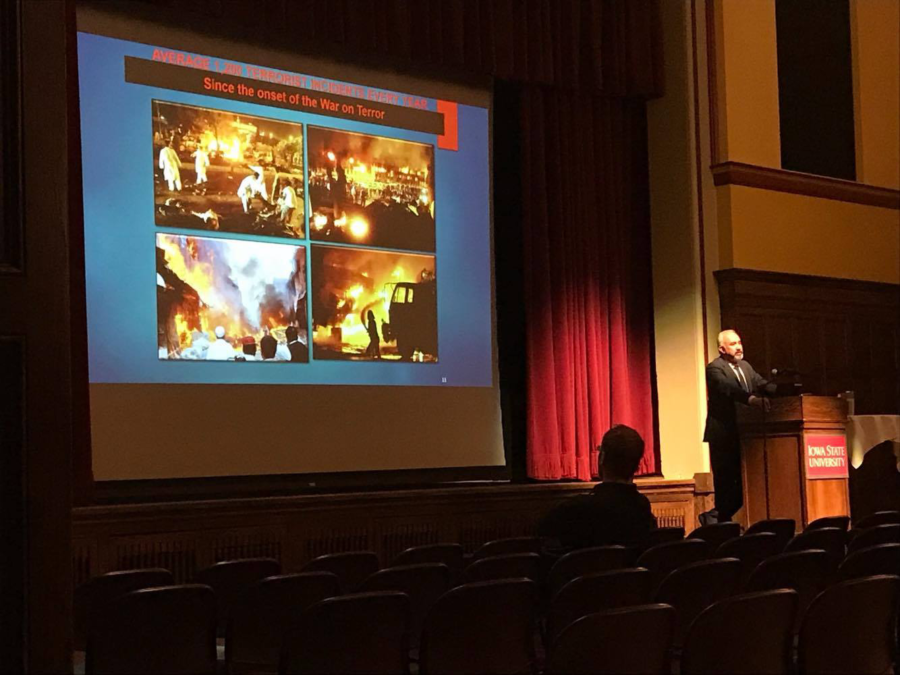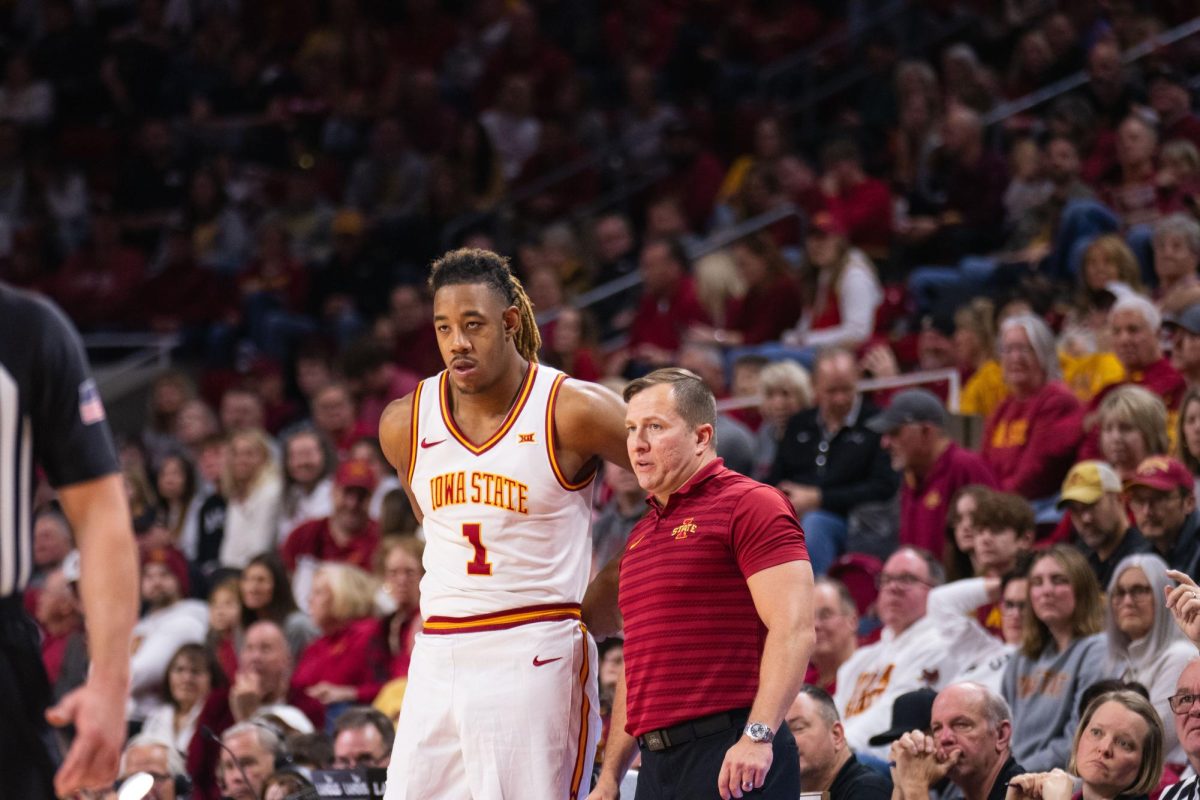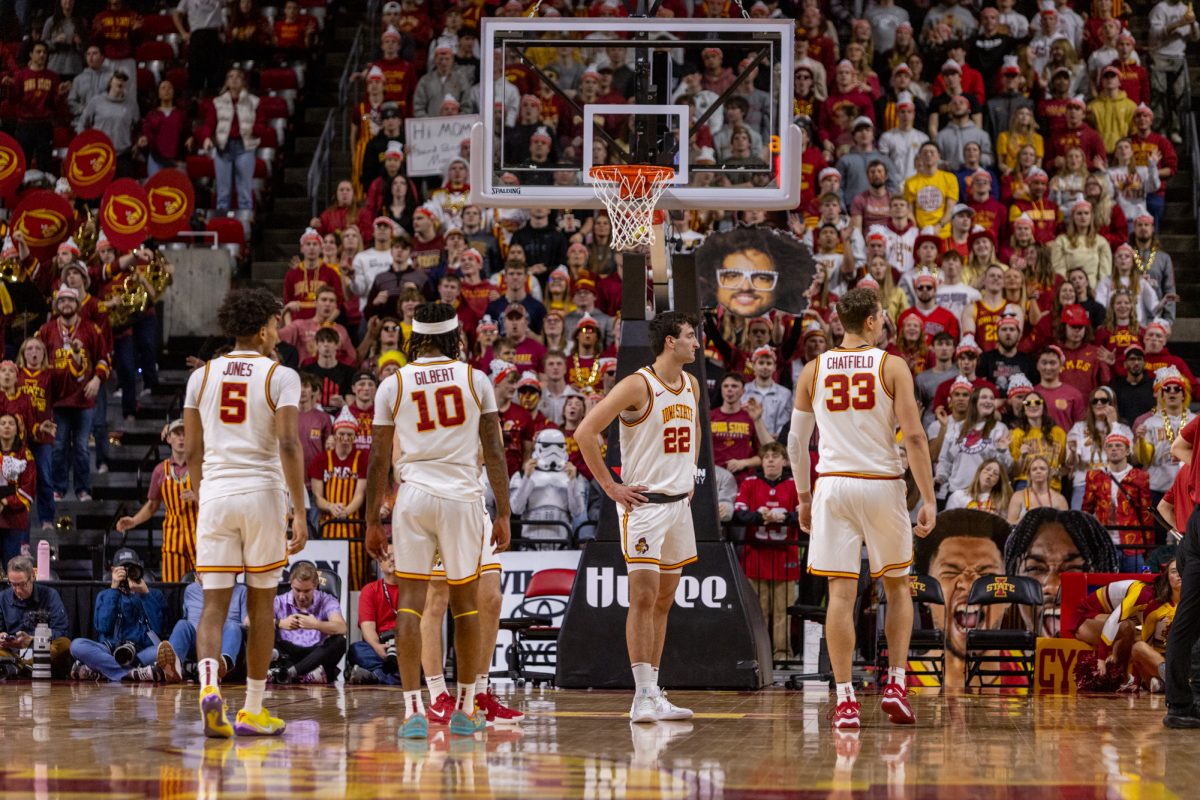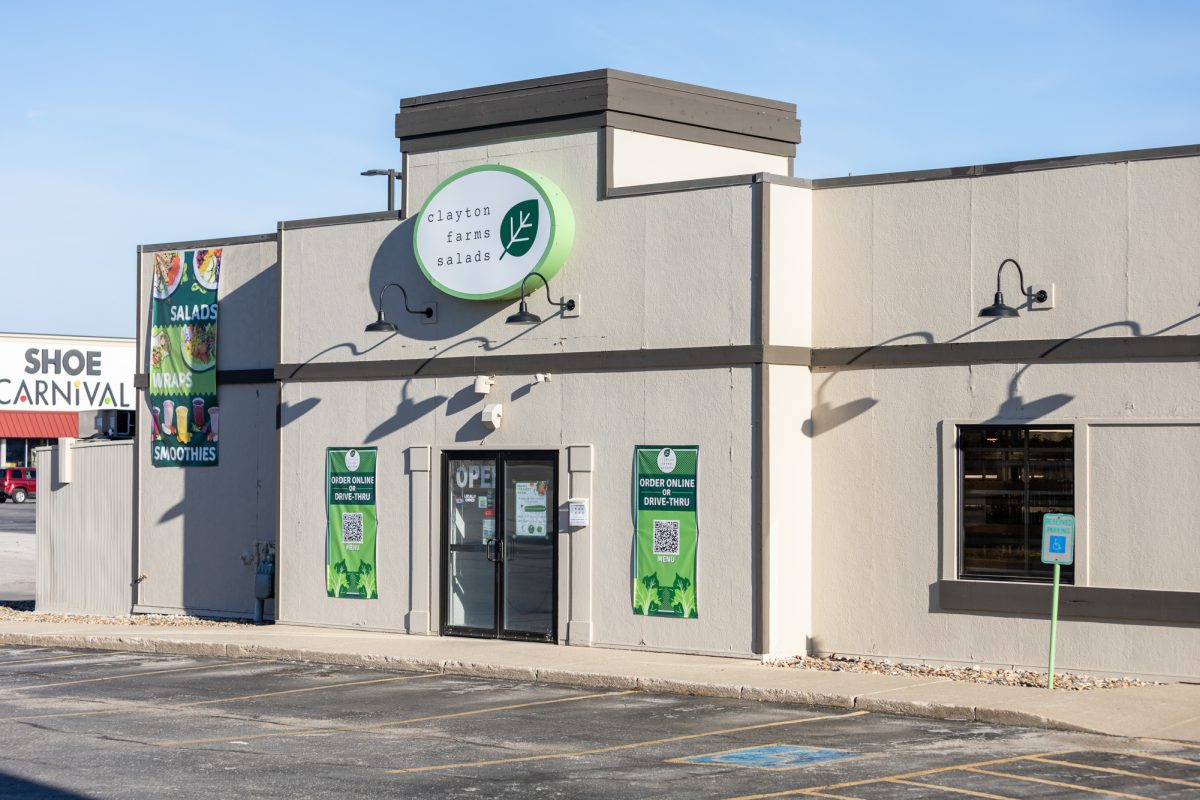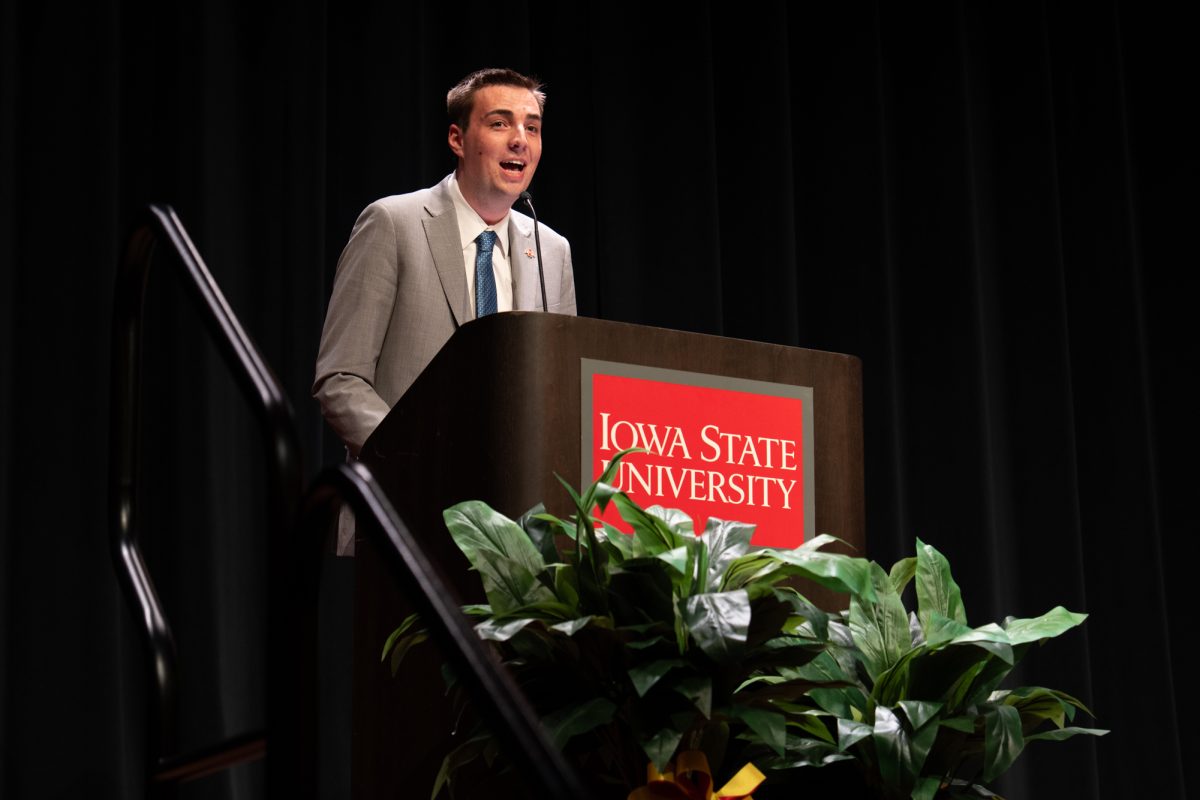“Pakistan’s Role in the War Against Terror” lecture comes to Ames
Megan Petzold/Iowa State Daily
At the “Pakistan’s Role in the War Against Terror” lecture on Nov. 7th, speaker Faisal Naiz Tirmizi explains to the audience how Pakistan is effected by the many attacks that occur in Pakistan. In this section of his presentation, he shows the audience some of the outcomes after the attacks happen.
November 8, 2017
Consul General Faisal Niaz Tirmizi brought a piece of his home country, Pakistan, to Ames.
Tirmizi hosted his lecture “Pakistan’s Role in the War Against Terror” on Nov. 7. Tirmizi, the consul general of Pakistan in the Chicago Consulate, hosted his lecture in the Great Hall of the Memorial Union.
Tirmizi began his lecture briefly talking about the history of Pakistan, like how it has only been a country for 70 years.
He next went into his personal tie to the war on terror: his nephew’s involvement. He mentioned his nephew was a soldier, nearly died in combat in 2007, resulting in 46 fractures down one leg and a massive contusion.
“This conflict has touched nearly every home in my country,” Tirmizi said.
Tirmizi said the war on terror has brought an average of 1,200 deaths each year since the war began. Over 90,000 soldiers and civilians have been killed and injured as a result of this war.
On Dec. 16, 2014, the Army Public School was attacked by six gunmen related to the Tehrik-i-Taliban Pakistan. The gunmen killed 144 people as a result, and most were students.
Tirmizi described the situation Pakistan faces as “the worst form of extremism that Pakistan has witnessed.” However, Tirmizi also mentioned the violence has become much more controlled as the war progressed.
Although Tirmizi believes the problem has diminished, he also believes Pakistan is still in trouble and needs help.
“Overall, I believe that this menace will only be tackled in cooperation with all neighboring countries as well as the U.S.,” Tirmizi said.
Following Tirmizi’s presentation, audience members were welcome to ask Tirmizi questions before a reception following the lecture.
Some attendees of the lecture felt it was educational.
“I came into [the lecture] with an open mind not really knowing what I would learn,” said Megan Frisvold, senior in global resource systems. “I thought it was really great, really informative. I learned a lot about topics I didn’t really know a lot about.”
Another student in attendance agreed the lecture was full of information.
“I thought [the lecture] was informative,” said Brett Hopper, sophomore in political science. “I didn’t think it explained how the issues could be solved. I thought it was more of a history lesson.”


